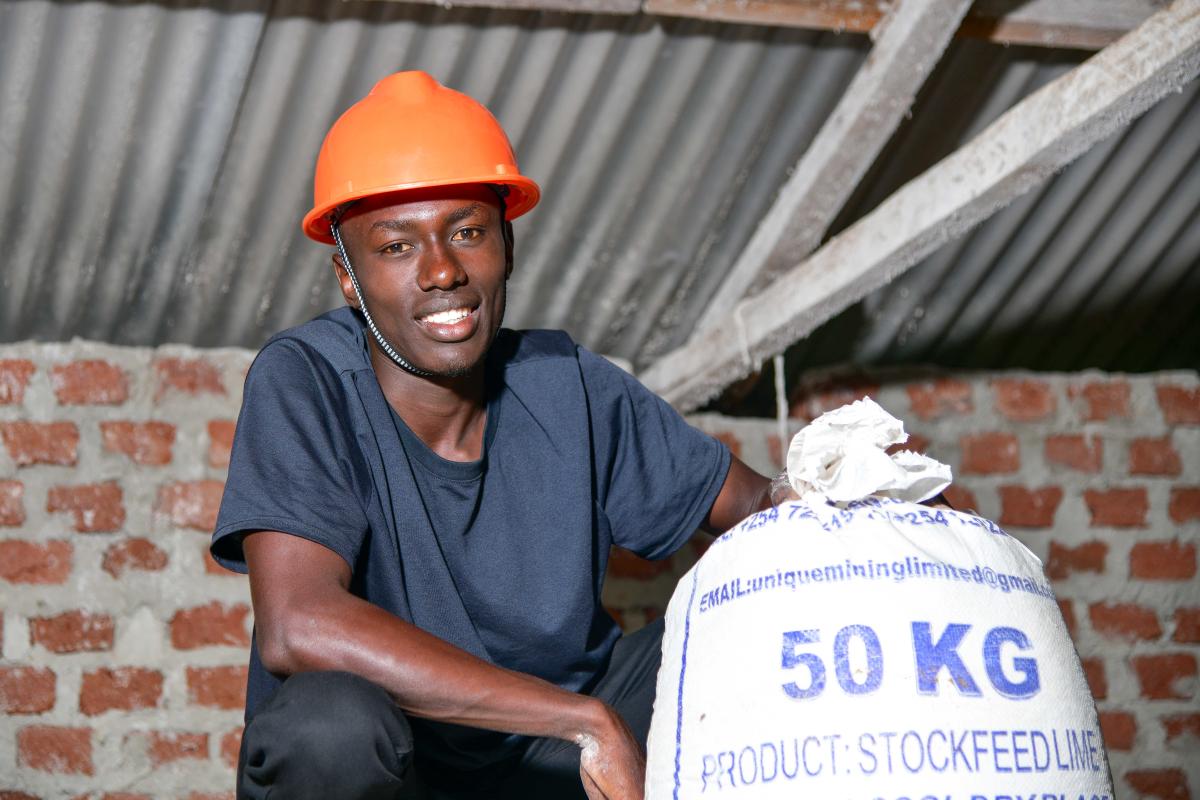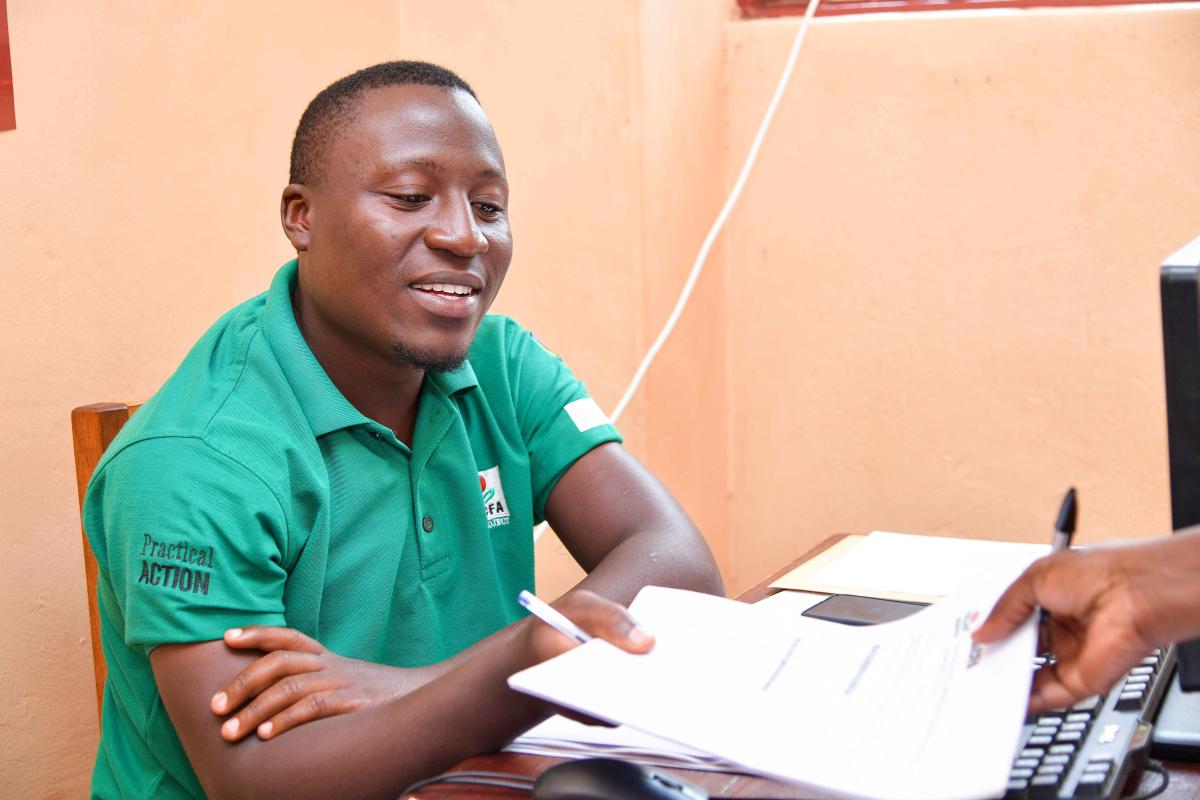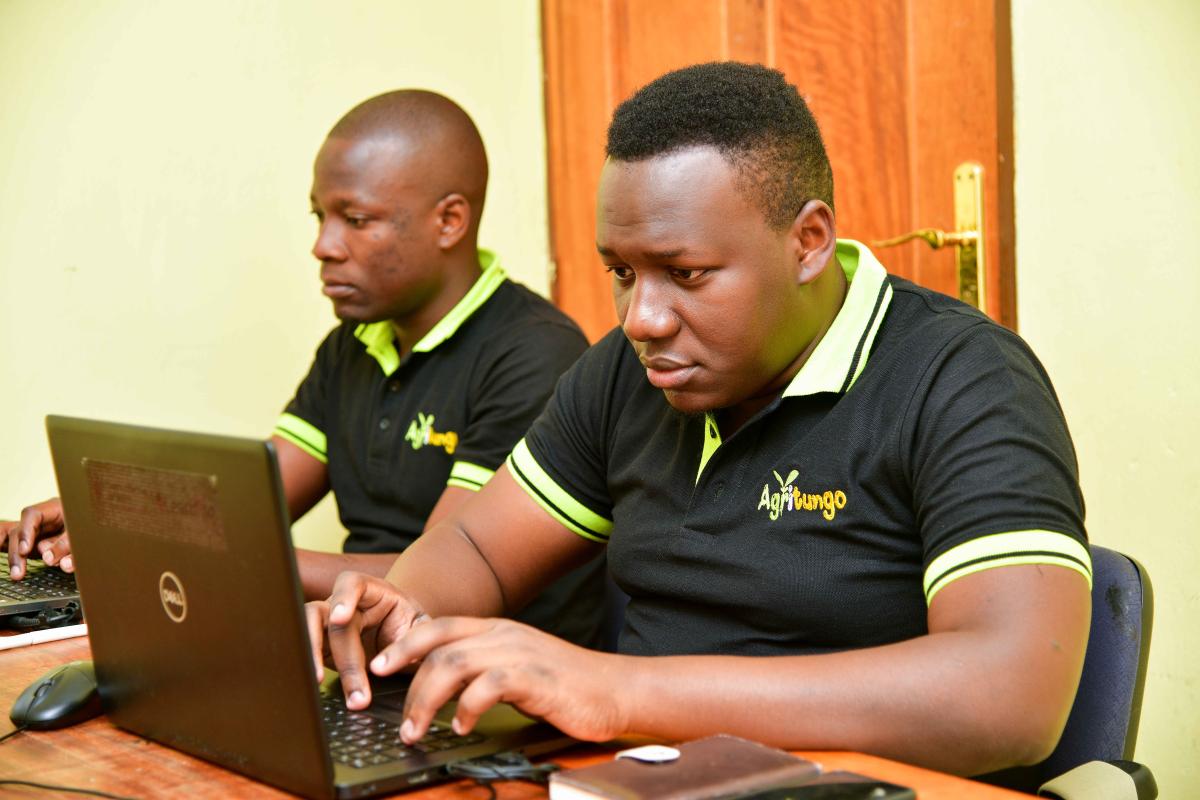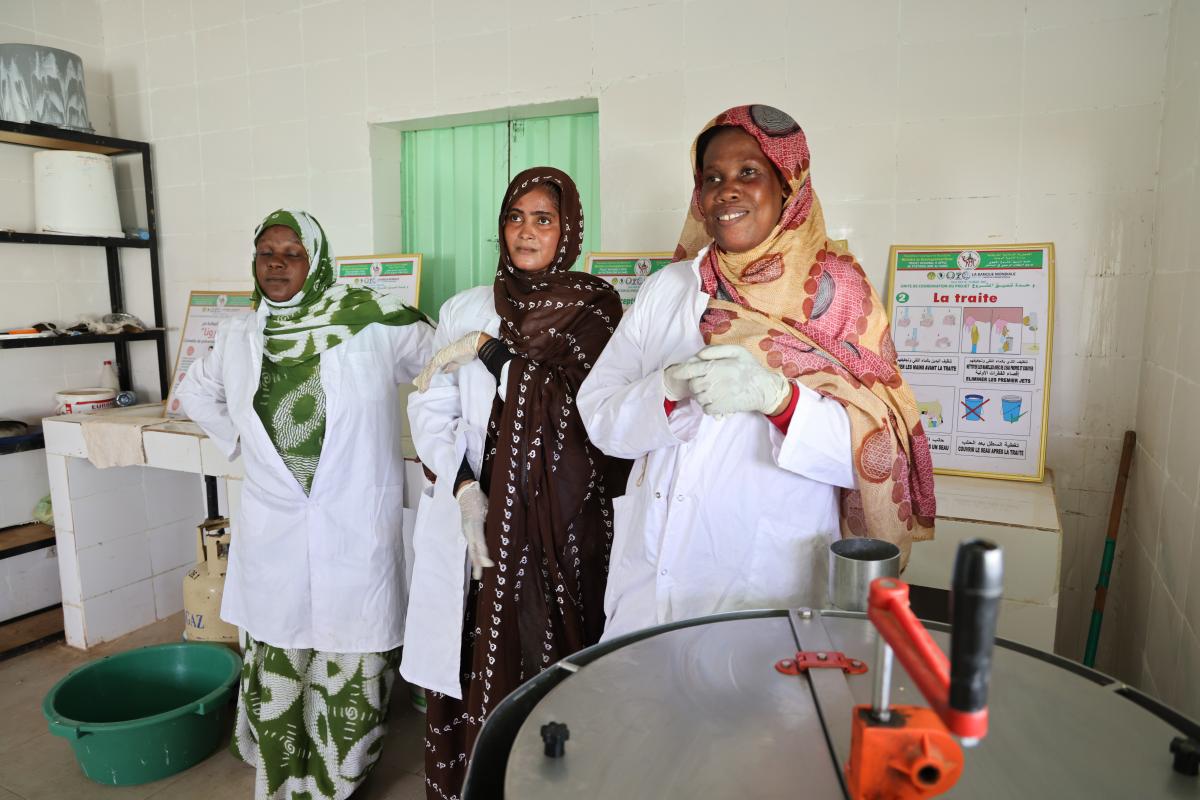Search
Viewing 315 to 330 of 2520 news
-
From hardship to harvest: Douglas Mirembe's journey in agri-business in Uganda
Jovia KAVULU | 04/03/2024
When he lost his father at the age of three, Douglas Mirembe’s mother thought that her children would not make it in life. However, through hard work and determination, Mirembe’s mother and his maternal grandmother who were both peasant farmers from Rwengaju Subcounty in Fort Portal City struggled to raise him and his siblings.“They could grow maize and do odd jobs to ensure that we stayed in school and had something to eat. Through the grace of God, I was able to study up to university,” he says as he recalls the dark days. Upon graduating, Mirembe chose to concentrate on small-scale agriculture. He reared goats, rabbits and practiced poultry farming. He says that he never bothered to apply for jobs, since he knew that it was not an easy task. At that time, Mirembe did not think of taking farming to another level, probably because he had no one to guide him. Besides, his practical skills were limited. It was after he got the opportunity to participate in the Work Readiness Programme that he came to appreciate that he could utilise the skills acquired to take on agriculture as a lucrative business.“The training sessions were hands on. I fell in love with my profession, and I realised that it was time for me to concentrate on agriculture, “he says.Mirembe is gradually expanding his business empire. He has established a farm in Kamwenge, where he grows coffee and maize. He has also purchased two cows, twenty hens and three goats.“Agri- business is the way to go. Agricultural products have ready market. People eat food on a daily basis. It is a lifetime job that other young people should try out. The training has been an eye opener to me,” Mirembe says.Before attending the training, Mirembe says he kept both animals and birds in the same structure. However, the skills he acquired have helped him to construct separate standard structures. He says that he has no plans of applying for jobs elsewhere because he believes that it is hard to get a job without paying a bribe.“For now, I want to concentrate on agriculture. I have a big business plan and skills. The challenge is that I lack capital but I’m sure that when I get a financial boost, my business will grow,” Mirembe says.
-
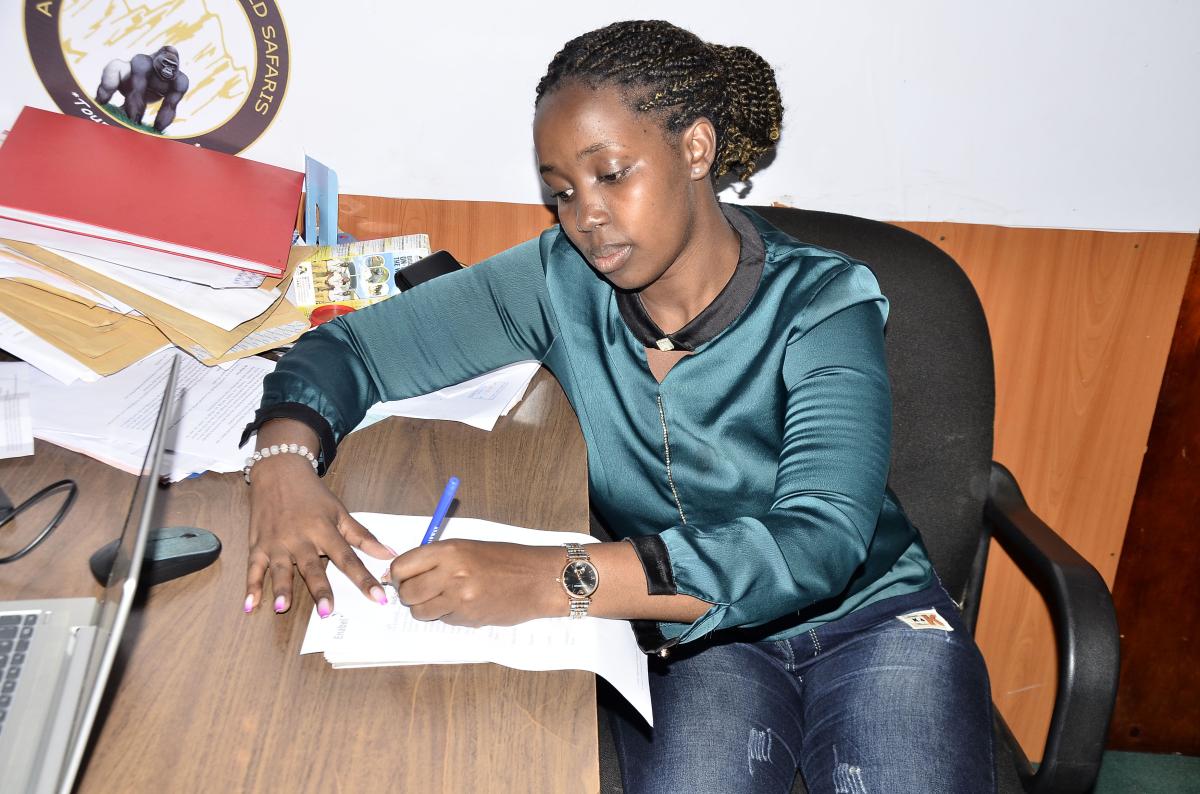
Justine Murungi's journey into tourism in Uganda
Jovia KAVULU | 04/03/2024
Justine Murungi is a graduate of Leisure and Hospitality Management from Makerere University Business School. She stands out because she got a part-time job immediately after Senior Six results were released by Uganda National Examinations Board (UNEB) in 2017. During her year, she emerged the best Senior Six student in the whole of Mubende district in Central Uganda. This prompted Murungi’s former school to offer her a part-time job. She was tasked to teach A-level students. She taught History and Christian Religious Education over the weekends. As some of her course mates went out to have fun over the weekends, Murungi was busy teaching. She could travel on Friday and return to Kampala on Sunday night or Monday morning to attend lectures. After graduation, she continued teaching since it was the only thing that would occupy her.During internship at Kampala Serena Hotel, Murungi realised the need to venture into tourism, since she was passionate about the sector. As she was contemplating her next step, a friend sent her a link with information about the Work Readiness Programme. She was interested so applied. “It had a lot of things to fill, but I made sure that I filled everything, and I went through,” she says.Murungi was attached to Adventure in the Wild Limited, a Tour and Travel company located in Najjanankumbi, along Entebbe Road to acquire hands on skills. She started writing content that could be shared with potential tourists on the company’s website. The content gives a detailed report of different tourist attractions in Uganda and different types of animals found in the various national parks. According to her, the training helped her to have a feel for the practical part of her profession.“I had never been to any tour company but when I came here, our director gave me an opportunity to learn. I can write good content about various tourist attractions,” she says. “Basically, when you are still at university, we focus so much on grades, but they don’t help in writing content. Most of the students doing tourism and hospitality stop and learn about tourist attractions but they don’t get a chance to visit them. “You study about Bwindi, but you don’t know the animals found there,” she adds.
-
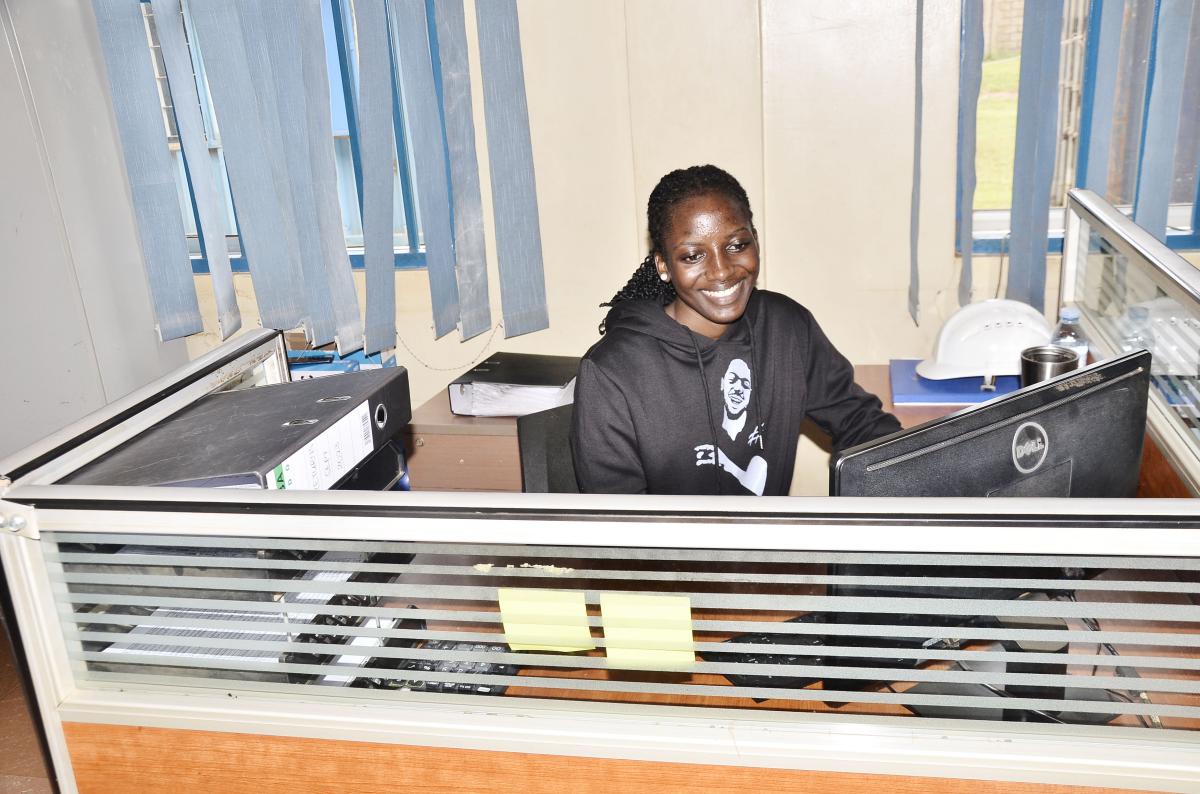
Why Uganda's Juliet found passion in record keeping
Jovia KAVULU | 04/03/2024
Juliet Mary Nakalembe, 25, is a holder of a Bachelor’s degree in Records and Archives from Makerere University. When Nakalembe was growing up, she wanted to become a journalist. According to her, journalism makes one famous in addition to having the power to change things through story writing. It also gives someone the opportunity to freely interact with people from different backgrounds, including government bigwigs.Unfortunately, her dream to be a journalist was never realized. Frequent intimidation and attacks on journalists by some security agencies forced her to change her mind. She quickly found passion in record keeping. She is a beneficiary of the Work Readiness Programme jointly implemented by Enabel and Private Sector Foundation Uganda with funding from the European Union. She is among the seven graduates who were retained by Steel and Tube Industries Limited in Namanve Industrial Park, along Jinja Road.She currently works as a Data Clerk. When different products are manufactured, she records them into the system. Nakalemba says that the skills she acquired during the training such as communication and management will help her set up her own business in future.
-
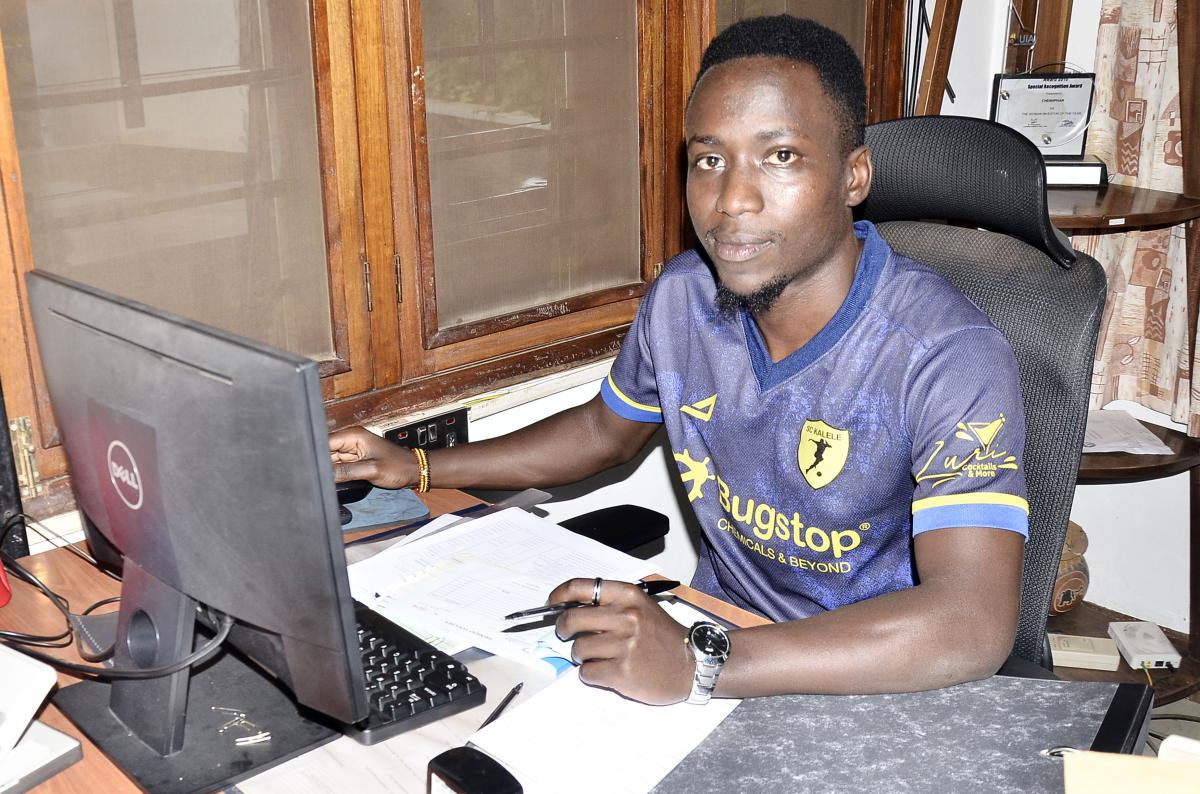
Uganda: PSFU, Enabel are a friend to lean on
Jovia KAVULU | 04/03/2024
Twesigye Oscar, 26, is among the few lucky graduates who have been able to find something to do, immediately after graduation. Hunting for jobs after graduation is something that some graduates must endure for a longer period, since job opportunities in Uganda are still scarce.When Twesigye graduated in 2021 from Makerere University, he was employed at Kyagalanyi Coffee as a Finance Assistant. Although the Company is in Mbarara in Western Uganda, Twesigye handled Kampala Operations. His daily pay was Shs 30,000. It was a temporary position, but it gave him a fresh start. His contract was initially supposed to elapse after five months, but it was extended to a year since he still had tasks to accomplish. When he heard about the Work Readiness Programme, he resigned from his job and concentrated on the training.Twesigye was among the graduates who were attached to Chemiphar Uganda Limited. After the training, he was retained by the company. Today, he works as the company’s Accounts Assistant. According to him, the knowledge he acquired during the training has helped him excel in what he does. He currently handles debtors and creditors as well as bank reconciliations.“When we give a service to clients, they must pay. I make sure that they pay. It is a whole process.When they request for a service, I quote for them the price, send an invoice highlighting the amount they are supposed to pay. After service is given, they must pay,” he says.He also processes payment for the company’s suppliers. He does this in partnership with the Procurement Officer. Twesigye considers himself lucky because the debtors he deals with are not so complicated. Whenever he contacts them, their response is positive. When it comes to handling cash, Twesigye says he always follows guidelines to avoid misappropriation of resources. He admits that handling cash is so tempting, but he sticks to ethics to avoid causing losses or being caught on the wrong side of the law. Twesigye says the salary he earns has been able to turn his life around for the better.“The salary has helped me to cater for my expenses and I have also enrolled for CPA course,” Twesigye says. He encourages his jobless peers never to lose hope but keep searching for jobs.
-
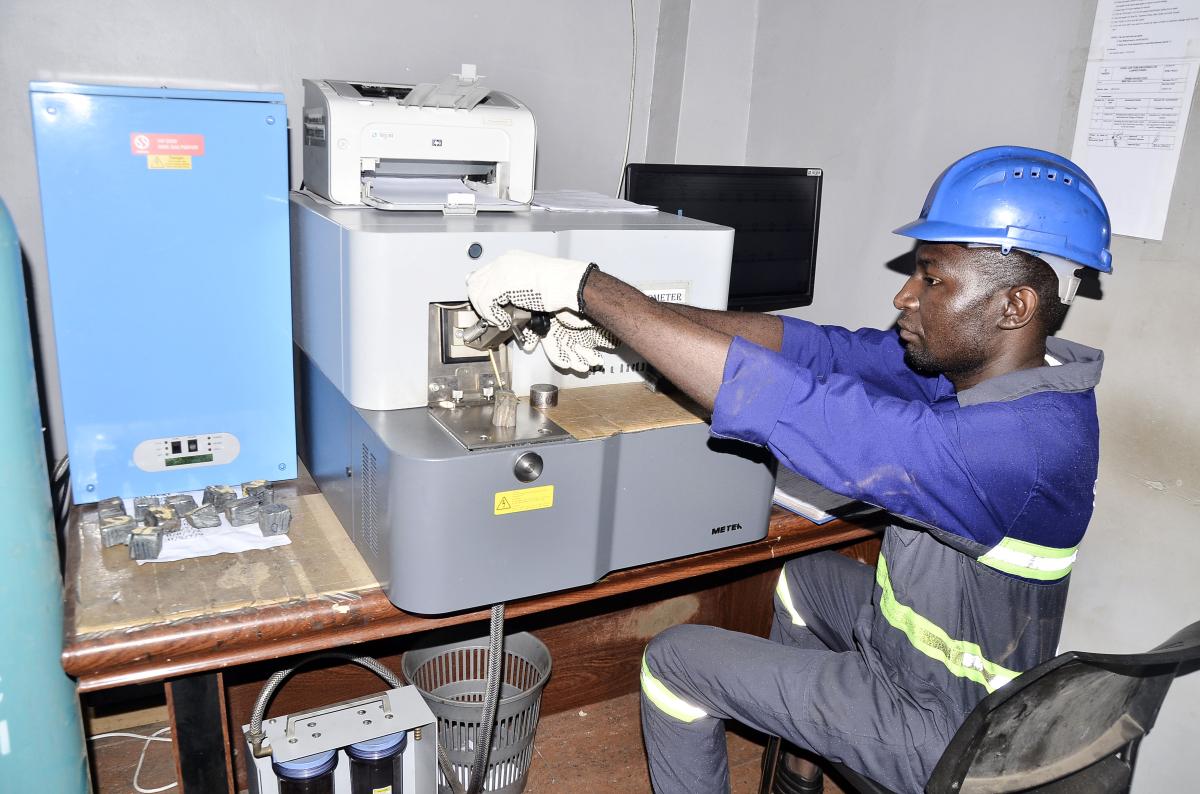
Mukello and Umar raise the bar for Steel and Tube Industries Limited at quality awards
Jovia KAVULU | 04/03/2024
Steel and Tube Industries Limited recently scooped a Consumer Choice award. This award recognises business excellence by conducting an independent market research survey to determine brand reputation, customer satisfaction and business excellence for the quality of services.Umar B, 26, a graduate of Industrial Engineering and Mukello Emma,27, a graduate of Chemical Engineering who were attached to the company during the Work Readiness Programme training are some of the brains behind the success of the company. Both graduates did and continue to do what it takes to produce quality products. Umar is in charge of one of the production lines at Steel and Tube Industries Limited. He manages the production line right from the wire drawing to the final stage of production.“We receive materials from South Africa, India and China and do material inspection to ensure we have the quality that we need,” he says.One of his tasks is to study the chemical composition and physical structures of the materials in comparison with the shipping certificates. If the two rhyme, the materials pass the quality test. He says quality measures value for money and that it is critical for the company to produce quality products to ensure that customers get value for money. He also says that the skills he acquired have helped him to confront challenges.“I have become more analytical and learnt how to handle problems. We have been prepared to handle challenges at the workplace,” he says.Mukello, says that he was assigned to manage the night shift, and that teamwork enabled them to scoop the prestigious quality award.“We have many companies producing the same products, but the customers chose us,” he explains.Mukello works in the chemical section of the company. He undertakes chemical analysis of the raw materials before they are used to ensure that they have the right material compositions. He says that one time, they were supplied with billets used to make iron bars. His analysis indicated that they were not of the required quality. He informed his boss, and they took them back to the supplier. Management has promised him a new contract.
-
Lubega saves Coffee farmers from middlemen’s exploitation
Jovia KAVULU | 04/03/2024
Andrew Lubega was attached to Kasaali Farmers’ Cooperative Limited (KACFAN) in Kyotera district. This was almost a year after he graduated from Kyambogo University in Kampala, where he was awarded a Bachelor’s degree in Micro Finance. Immediately after joining Kasaali, he was exposed to practical skills in the areas of credit management, report writing, communication, teamwork and mobilisation skills among others.“I learnt how to create a mutual understanding with clients to be able to recover loans from them. You don’t need to be arrogant or too soft, the tone of your voice has to be balanced. When you are too soft or rude, you may not recover loans from people,” he says. The professionalism he exhibited during the training prompted the organisation to retain him as its first Loans officer. The SACCO gives loans to members during planting seasons, and they are expected to pay back after they harvest coffee. Since he took on this task, SACCO’s share capital has increased from Shs. 7, 810,000 to Shs. 14,780,000. The membership of the SACCO has also grown from 383 to 665 people, most of whom are embracing borrowing to expand their farms. On August 31, 2023, for example, he received loan applications from eight coffee farmers, worth Shs. 65,200,000. His initiative of encouraging farmers to borrow from the SACCO and pay back during harvesting season, has saved them from middlemen exploitation.“They were convincing farmers to sell immature coffee at a much lower price. I encouraged those who needed money to come for loans to allow the coffee cherries to mature before they could sell them,” he says. Farmers could sell 10kgs of raw cherries at Shs. 10,000 yet the same quantity of ripe coffee cherries costs Shs. 50,000. “The money was going to the pockets of middlemen,” he says.
-
Ologe, Hyuha, strive to fit into the digital space with new innovations in Uganda
Jovia KAVULU | 04/03/2024
Michael Ologe was attached to the technology department of Ahuriire Uganda Limited located along Isingiro road in Mbarara City. During the training, Ologe, a graduate of Computer Science from Uganda Christian University, and Hyuha Gerald, 28, a Software Engineer who graduated from Makerere University last year, were tasked to use the skills acquired to create, maintain and manage digital products of the company. They combined efforts and successfully developed two products for the company, Agritungo farmers App and Rembo Finance, an online financial management platform. “We joined at a time when the company was re-branding the system and we built it from scratch. We were able to develop a new version of the system and a mobile application system dubbed, agritungo. It offers a variety of services to farmers,” Ologe says.Ologe says Agritungo App helps farmers to manage their farms using mobile phones anywhere, any time. The key features of the APP include; farmer profiling, farm management and milk database among others. Additionally, the two trainees developed Rembo, an online financial management platform which targets Savings and Credit Cooperative Organistions (SACCOs), Microfinance Institutions (MFIs) and Village Savings and Loans Associations (VSLAs).Its key features include; member enrollment, savings and credit management, loan management, online and mobile banking and automatic SMS alerts. The graduates confess that the training was an eye-opener to them and that with the acquired practical skills, life will never remain the same.Hyuha who also develops websites as a side business, says before the training, he was half baked but has since transformed into an innovator. “I did not know most of the things but now, I have developed skills in programming, Software development, setting up networks using bootstrap,” he says with a smile of hope. His trainers at Ahuriire were able to guide him on application of the knowledge acquired at school.
-
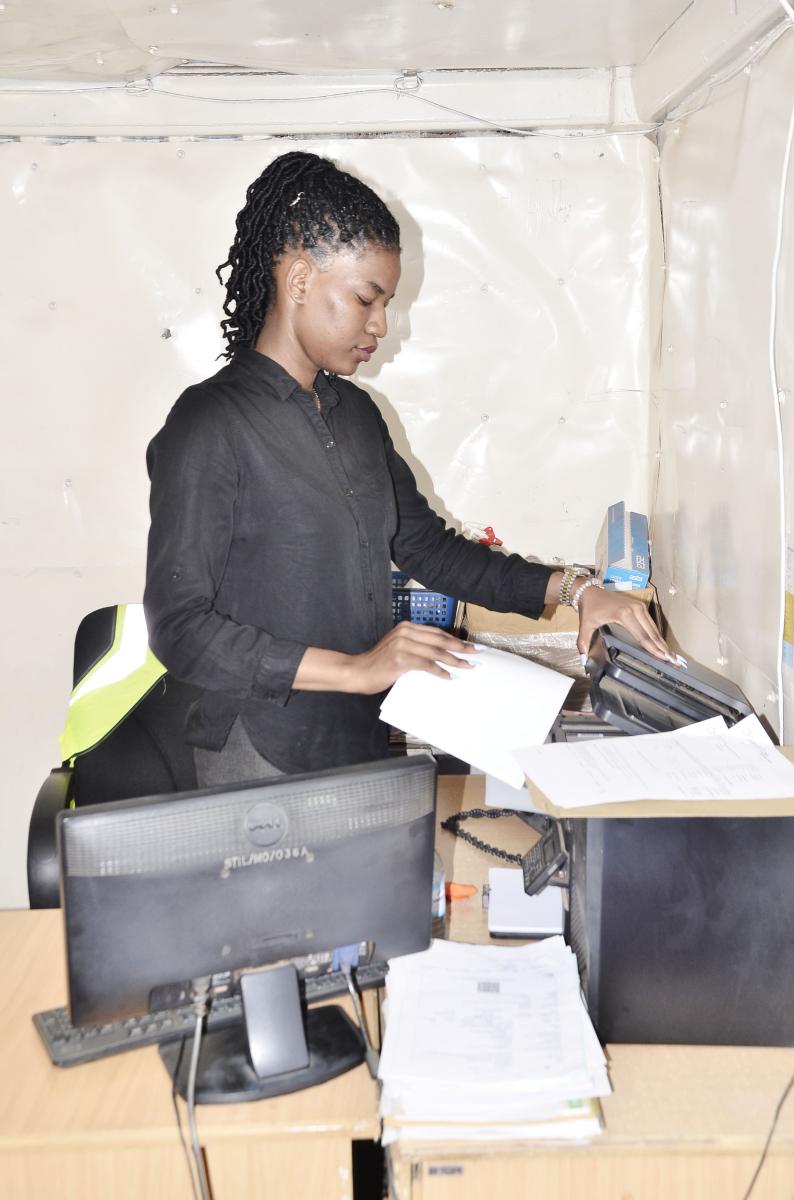
From Receptionist to Logistics Officer in Uganda
Jovia KAVULU | 04/03/2024
Nakazibwe Precious Lynette 24 is a graduate of Business Computing from Makerere University Business School. She is always passionate about what she does, and this probably explains the rapid growth in her career.Nakazibwe is among the lucky graduates who were retained by Steel and Tube Industries Limited located at Namanve Industrial Park after their successful completion of the Work Readiness Programme. At first, she worked as a receptionist. This is probably because of her God-given smile that never fades. She was the first point for customers. However, the work ethics, hardwork and the strong customer care that she exhibited while managing the company’s Front Desk helped management to discover that she had a lot to offer. She was appointed a Logistics Officer.Some of her responsibilities include purchasing spare parts for the company vehicles, trucks allocation, vehicle tracking and fuel allocation. She learnt how to interact with different people, including the drivers and turn men who fall under her docket of work. She manages a team of about 35 people, majority of whom are drivers and turn men.Being a hardworking beautiful young woman, she is always confronted with sexual advances from some men at her workplace. However, since she respects herself. She always turns down such advances and instead counsels such men to focus on their work.Nakazibwe says it is normal for men to hit on ladies who are attractive, but it is important for the women to respect themselves.Besides working as a Logistics Officer, Nakazibwe has ventured into business to supplement her income. She imports and sells secondhand clothes online. The money she makes has enabled her to take care of her parents and siblings.
-
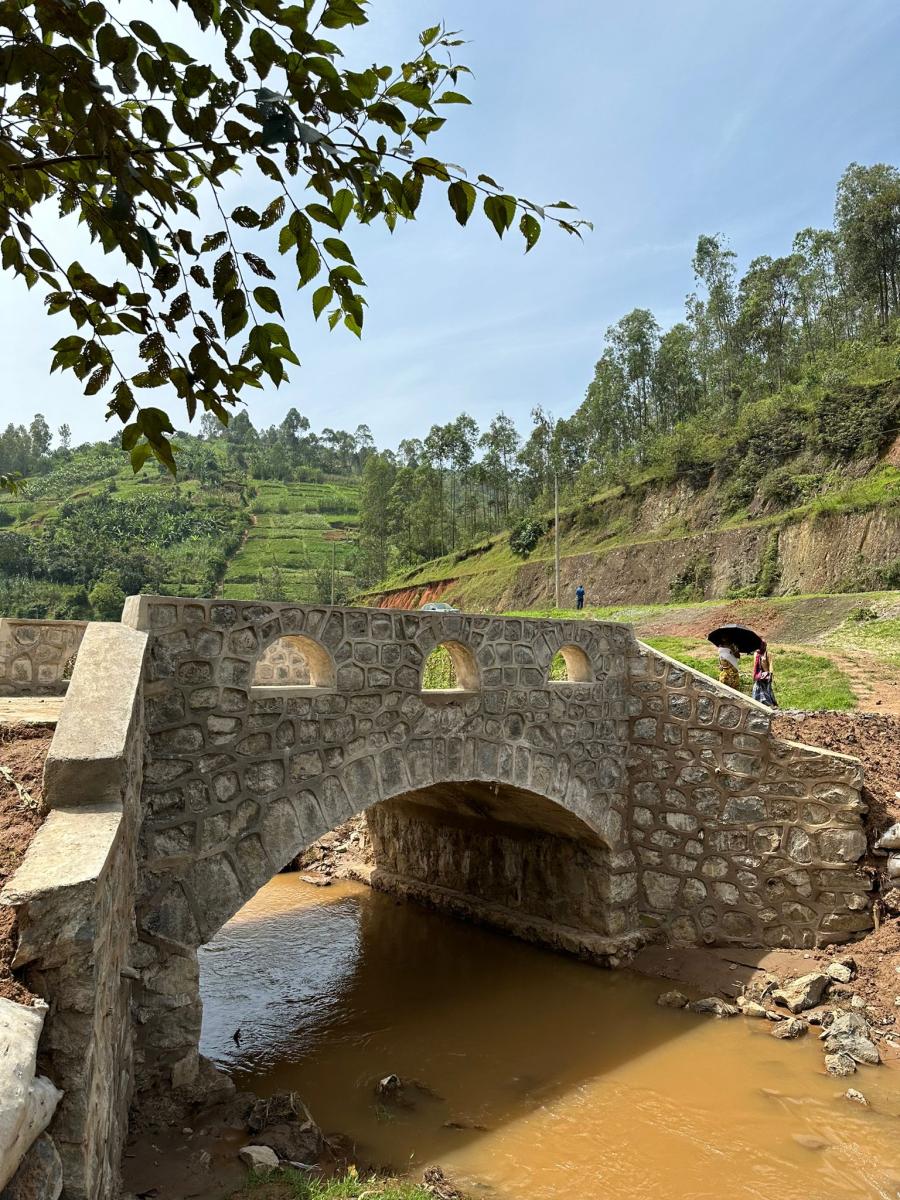
A better connection for Rwaza sector residents, the new bridge is completed!
Denise NSANGA | 01/03/2024
The completion of a new bridge in the Musanze district's Rwaza sector represents an important improvement in local infrastructure, enhancing the lives of the community members significantly. This new bridge, which spans 5 meters in both width and length, was constructed over 4 weeks between January and February 2024, with a budget of 18.5 million Rwandan francs and the active participation of the community. It serves as a critical connection for residents, facilitating easier access to main roads and thereby improving mobility for essential services such as schools, health centres, and markets for farmers.Replacing an old structure made of wooden poles, which was regularly washed away by floods, this new construction not only ensures safer and more reliable transportation but also mitigates the risk of accidents and reduces the community's vulnerability to isolation during adverse weather conditions. Funded by Region Bruxelles Capitale and realized through a collaboration between Enabel's Urban Economic Development initiative (UEDi) and the Musanze District, the bridge stand as a manifesto of the power of partnership in addressing infrastructural challenges.This development not only physically bridges gaps within the community but also symbolically represents progress towards resilience and security. By providing a durable solution to a longstanding problem, the bridge significantly contributes to the socio-economic development of the Rwaza sector and its surrounding areas, marking a pivotal step forward in the district's ongoing efforts to enhance its infrastructure and the quality of life of its residents.
-
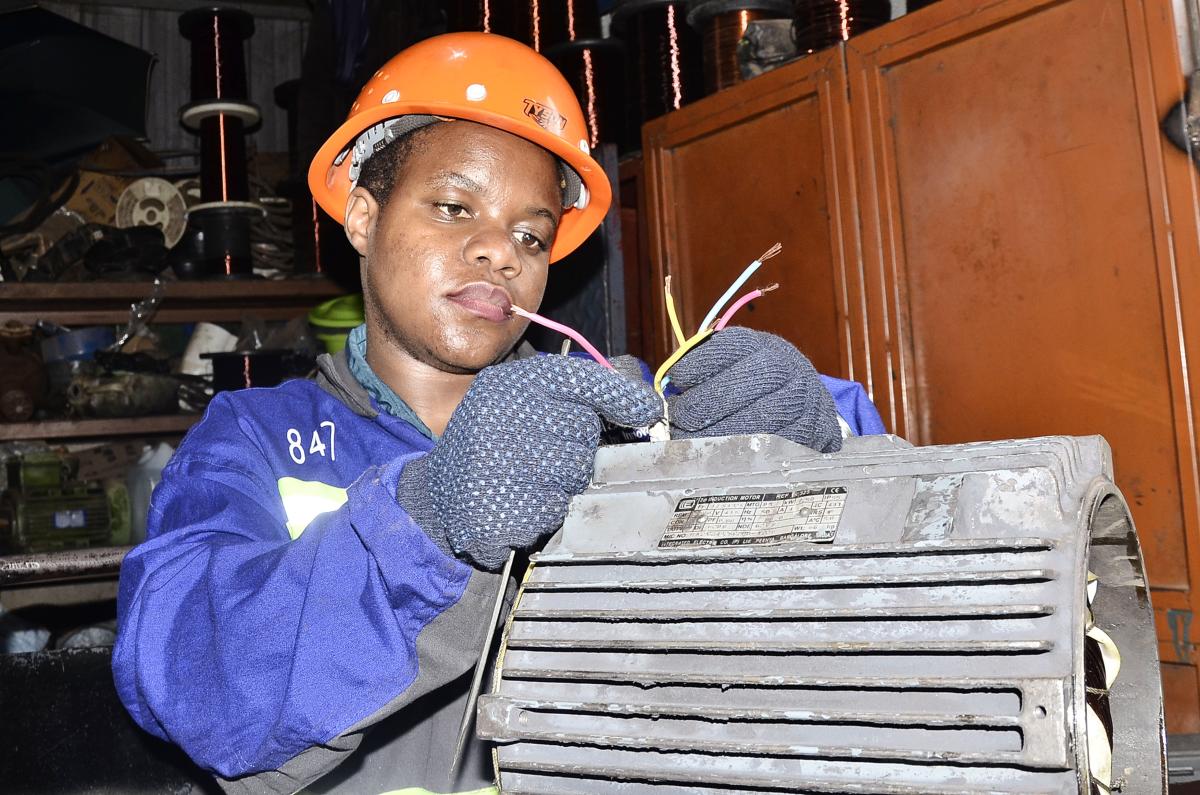
Atuheire confronts electrical engineering, a field dominated by men in Uganda
Jovia KAVULU | 01/03/2024
Although the government is promoting the teaching of sciences in schools to ignite innovations and development, available statistics indicate that more boys than girls have embraced this call.The false belief that girls are only good at subjects labelled as soft such as English and other arts has discouraged some girls from pursuing these subjects even when they are capable of excelling. Girls too can excel in the science world.Atuheire Gift, 27, an electrician at Steel and Tube Industries Limited, located in Namanve Industrial Park in Mukono is a testimony that girls can equally excel in sciences.Atuheire is a graduate of Electrical Engineering from Kabale University in Kabale District. She is attached to the maintenance department of Steel Roll Limited located in Namanve Industrial Park. She maintains and repairs transformers and motors. Motors are used to run the machines in the factory.“I determine whether it is in the right state or not. Those that have issues are repaired immediately to avoid breaking down,” Atuheire says.At first Atuheire wanted to be a teacher. She admired a particular teacher while at Mary Hill Secondary School in Mbarara so she wanted to be like her. She says the teacher was articulate and always dressed to kill. She, however, later on discovered that teachers go through so many challenges including merger pay hence the decision to switch her focus to Electrical Engineering. She says the Work Readiness programme has exposed her to the world of work.According to Atuheire, her life will never remain the same since she has what it takes to accomplish any task assigned to her.
-
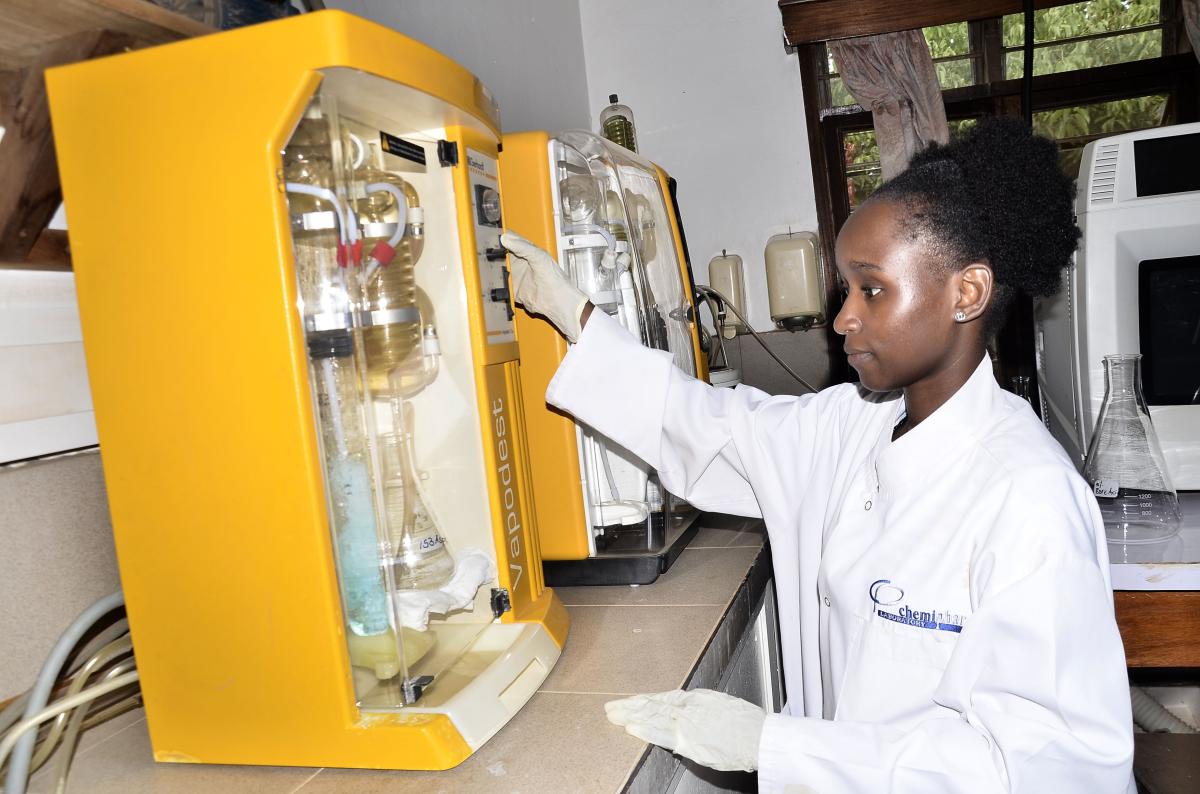
Saving lives through quality control in Uganda
Jovia KAVULU | 01/03/2024
Catherine Asaba Mbigidde,24, works as a Chemical Analyst at Chemiphar Uganda Limited, an analytical laboratory and inspection company located in Kansanga, a Kampala suburb.Asaba spends most of the time in the laboratory analysing the composition of different parameters found in samples of products brought to the company for analysis to ensure that they meet the set standards.The company covers a wide range of products including seed testing, pharmaceuticals and cosmetics as well as food and beverages.Despite being a graduate of Food Science and Technology from Uganda Christian University, Asaba confesses she knew little about the practical aspect of chemical analysis, since there was limited exposure at university.According to her, the Work Readiness Programme enabled her to get a detailed grasp of the topics she studied while at university.“I have learnt a lot of technical skills. When I came in at first, I didn’t know much about the lab. Yes, I did Chemistry, but it was at a different level. The work I do here is about working with samples. We did practicals at university, but there were not so many because most of the laboratories were not well equipped,” she says.Asaba says that by the time she left university, she was only familiar with analysing moisture, protein, fats and ash.She has since expanded her expertise to cover more areas including water analysis.“When you don’t have the practical bit of it, then you will not be able to work because it will be hard for you to relate what you learnt to what happens in the real world. Different samples of products are brought here, and we test them for different parameters,” she says.She says that for foods and beverages, they look out for parameters such as starch, carbohydrates, proteins and also establish the composition of those components.Asaba says there is a limit for each component found in food or juice and that these parameters must be in line with the set standards before the Uganda National Bureau of Standards allows it to go on the market.Each country has its own limit and in Uganda, this mandate is implemented by the Uganda National Bureau of Standards. She says that taking shortcuts, or employing non-professionals is likely to compromise the quality of products which may affect the health of consumers and the country’s economy, as substandard exports will be rejected by some countries.“Our milk and maize have been rejected by Kenya due to quality issues. We still have a long way to go,” she says.Apart from the technical aspect, Asaba says the training enabled her to acquire better communication skills, sticking to work ethics and being able to handle emotions at work.Like most focused youthful employees, Asaba plans to enroll for a master’s programme in Food Science.“We have learnt what is required of us in the real world of work. We have also been exposed to people who can help us to grow career wise,” Asaba says.
-
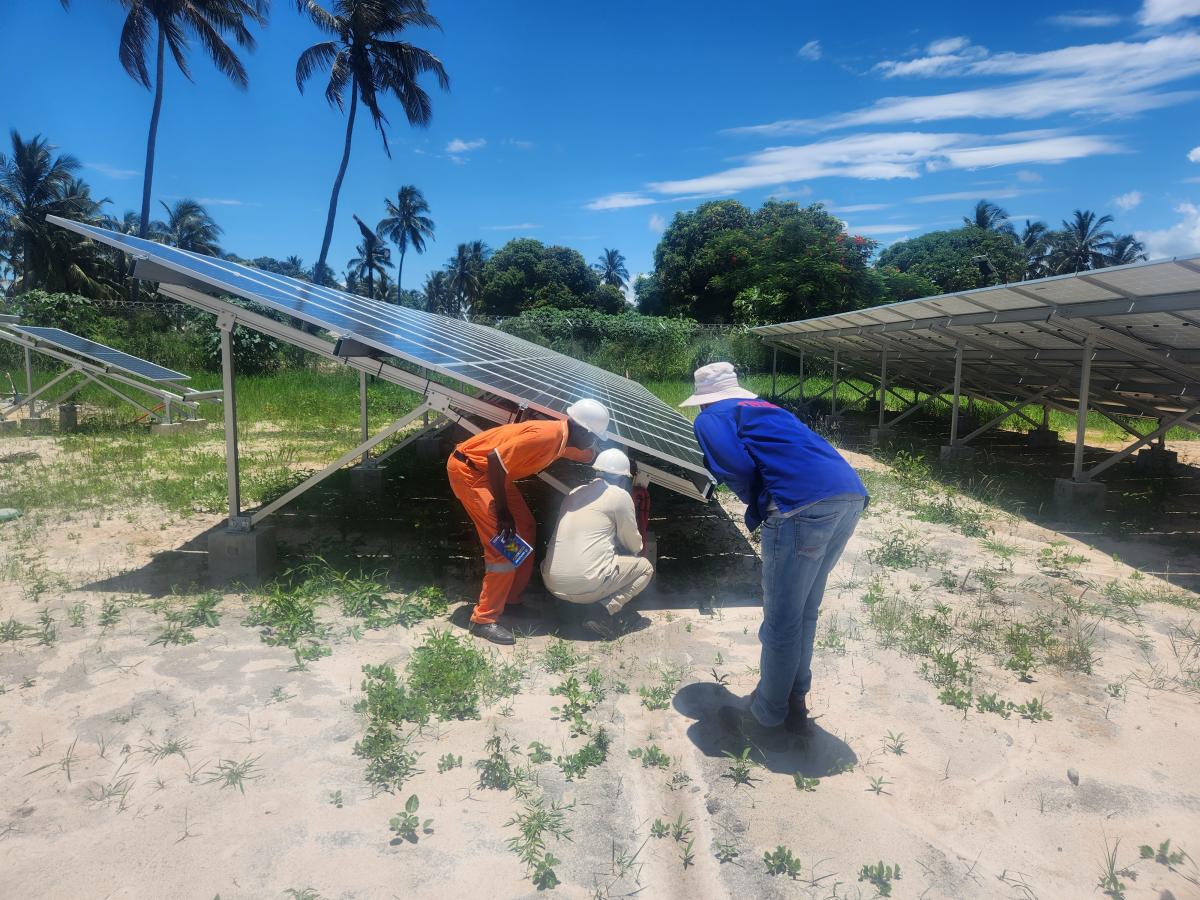
New hope arises for the inhabitants of Idugo Island in Mozambique, thanks to a solar powered grid
Alfredo MANDLATE | 23/02/2024
A major transformation will improve the quality of the life of the residentsLocated 72 kilometers from the village of Mocubela, a major transformation is taking place on the island of Idugo. The construction of the solar-powered mini grid will bring significant changes to the community and brighten the future of all residents by providing access to electricity on the island. This initiative is a crucial step towards improving the quality of life of the island's residents and boosting sustainable development in Idugo. For decades, more than 13,000 residents of Idugo (less than 10% have access to energy through small solar panels and batteries) faced major challenges related to electricity on the island. The lack of electricity limits progress and significantly affects the community's quality of life. Idugo is a fishing community. Currently, to preserve fish, residents need to travel to Pebane to buy ice, which is an hour away by boat and involves high costs. Additionally, health centers and schools on the island have limited operations once it gets dark. This fact makes the community leader of the island of Idugo, Mr. Felisberto Veloso, unhappy, he tells how hard it is to live on an island without electricity and what implications this brings to day-to-day life : “The population of the island of Idugo is composed of mostly fishermen and life becomes very complicated without energy, as we cannot store the fresh fish. To prevent the fish from spoiling, some are salting it and others are drying the fish in the sun. At the schools, we don't have night shifts and in hospitals, they use small battery-powered lamps, which makes night births very difficult and dangerous. Part of the population ends up leaving the island to build and live outside the island, in Pebane, Gurai, Tapata, and Mocubela.” This situation highlights the critical importance of access to electricity and how the lack of it impacts many aspects of daily life. The search for sustainable and affordable solutions to meet this need is fundamental to improving the quality of life of the inhabitants of Idugo. With the support of the Government of Mozambique (through the Energy Fund- FUNAE) and Belgium (through the development agency Enabel), a solar-powered mini grid is being built on the island to the relief and joy of the local population. This is a plant with a capacity of 230 kWp and 1330 kWh of storage, supplying energy to a distribution network with an extension of 4.2KM of medium voltage and 45KM of low voltage, and it will connect 1125 homes, commercial establishments, health facilities, schools, administrative building, churches and ensure public lighting for 200 public lamps in the 3 neighbourhoods of the island. A DREAM ABOUT TO COME TRUE! Since the start of the works in September 2022, the construction of the Idugo mini grid has been a constant challenge. The island of Idugo is only accessible by boat from Gurai (Bajone, Mocubela district) or Pebane. Furthermore, the rainy season significantly limits the possibilities for progressing the work. The absence of a pier for docking and unloading heavy equipment, such as generators and transformers, makes the construction of this mini grid extra challenging compared to the other mini grids under construction in Zambézia and Nampula Provinces. Currently, the works are progressing at a good pace, and the contractor (the ENERSOL/AZIMUT360 consortium with Mozambican subcontractor Tecnel) already has completed the construction of the plant and the battery house. This noticeable progress fills the local community with hope because it envisions the possibility of having finally electricity on their island and symbolizes the opportunity to further develop the island. February 1st will be remembered by all Idugo islanders, as well as for the team involved in the construction of the mini grid. That was the day the first posts of the distribution grid were erected. According to the Intervention Officer of the project, Arn Jonkers, “the installation of the first pole is a very important milestone for the project, since the construction of the distribution network is part of the mini grid construction that requires the most time. Idugo is only accessible via boat, which means that a mini grid and/or individual solar systems are the only options for the population to access energy. Furthermore, being a fishing community, they need energy to conserve fish, making access to electricity an significant catalyst for development on the island. So, Idugo is a classic example of productive use of energy in a mini grid”. With the ongoing installation of the mini grid, the island's residents can already dream about the big changes the mini grid can bring to their lives. What was almost impossible is now close to being a reality for residents. The community leader, Mr Felisberto Veloso, confirms this fact by saying, “years ago I could never have imagined that we could have energy, but now with the installation of the poles, the entire population already believes that they will actually be able to have energy. We hope to see changes on our island, we hope to finally see development arrive.” The development that the community leader talks about is centred on concrete points as he presents it to us, “for our schools, they could have night shift and this will mean that we will have more classes and more people studying in 2025, there are people who want to study, but it can only be at night. In the hospital, we will be able to have safe births at night. We already have residents who are building conventional houses and many of them have already given up on the idea of leaving the island because they know that development has already arrived. We have 3 markets and the stalls (stores) are increasing, many have already bought freezers, televisions and are just waiting for the power to be turned on”. The works are not yet finished, but it is with great satisfaction that we look at the enthusiasm that the community shows. The mini grid is more than cables, batteries, and solar panels, it is the promise of a better future for the Idugo Island community.The Idugo mini grid will provide clean and sustainable energy, boosting economic development and improving quality of life.
-
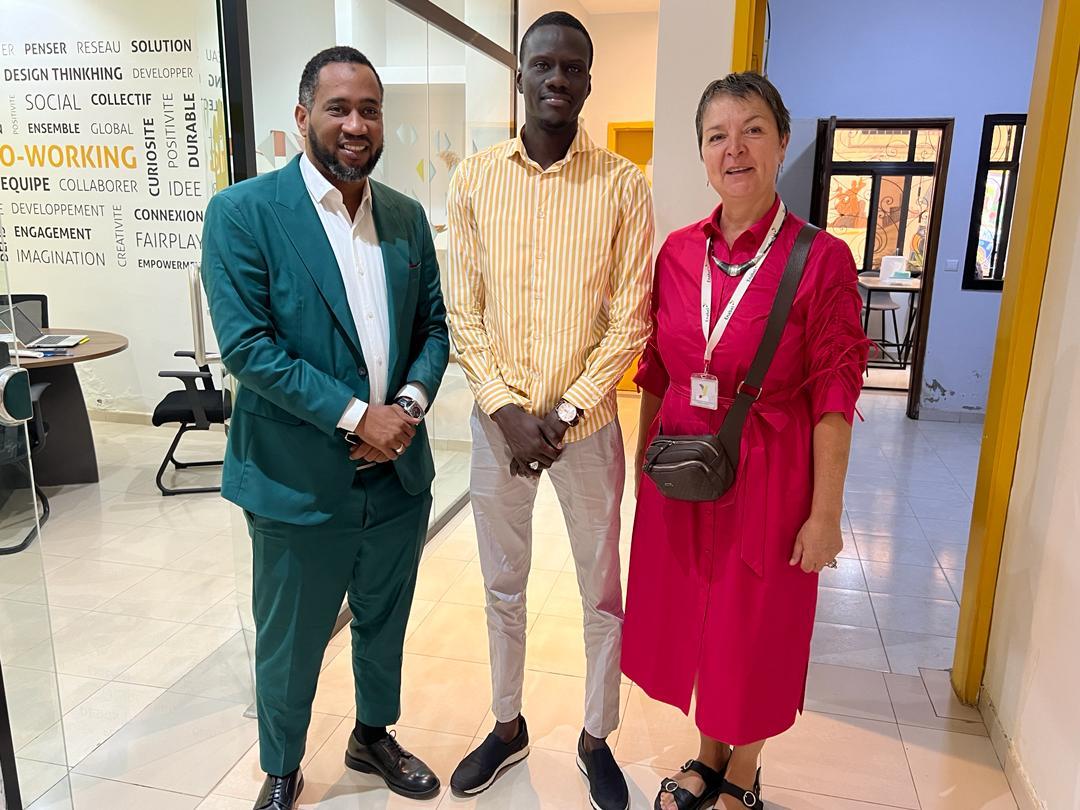
Visite d'échange entre la Mauritanie et le Sénégal pour nos Conseillers sécurité
Aminata KANE | 23/02/2024
Une rencontre où l'échange d'informations et d'expériences était au cœur de l'objectif.Une visite régionale de notre Conseiller sécurité avec son homologue du Sénégal s'est déroulée dernièrement. Elle s'inscrit dans le cadre du Programme Régional d'Appui au Développement de l'Économie Pastorale (PRADEP). Les objectifs principaux de la mission visaient la révision des documents de sécurité du Sénégal, l'analyse des zones d'intervention, et l'harmonisation des normes de sécurité. Cette rencontre a également permis d'explorer et de collecter des informations sur la situation sécuritaire locale, d'identifier les risques, d'échanger avec les forces de défense et d'analyser de manière approfondie la sécurité dans la zone du projet. La récente visite régionale de notre Conseiller sécurité et de son homologue sénégalais, s'est avérée être bien plus qu'une simple mission de travail. C'était une rencontre avec des résultats tangibles où l'échange d'informations et d'expériences était au cœur de l'objectif. La collaboration fructueuse entre les deux collègues a permis d'atteindre les objectifs fixés. Une rencontre qui n'a pas seulement renforcé les compétences et pratiques des deux Conseillers sécurité, mais qui a aussi mis en lumière l'engagement commun envers l'amélioration continue.
-
Témoignages inspirants d'acteurs pour une agriculture durable en Mauritanie
Aminata KANE | 21/02/2024
Rétrospective d'actions porteuses ayant un impact visible sur les communautés du sud mauritanien.Le programme RIMFIL d'Enabel pour la promotion du développement de filières agricoles et pastorales durables en Mauritanie, avance à grands pas grâce au travail acharné des collègues et des partenaires. Afin de mettre en lumière les différents résultats, nous partageons différents témoignages d'agropasteurs qui ont bénéficié du soutien des experts d'Enabel sur le terrain. Le programme poursuit deux objectifs distincts : A - Des productions familiales et communautaires durables sont consommées, transformées localement ou commercialisées.B - Des techniques adaptées au changement climatique sont promues.Le premier résultat escompté est que des filières agro-sylvopastorales soient mieux structurées, ainsi que les compétences organisationnelles et techniques des acteurs de ces filières soient améliorées. Dans ce cadre, chacune des 4 régions cibles (Assaba, les 2 Hodhs et le Guidimakha) a profité d'une formation pour 30 facilitateurs pastoraux, agricoles, qui à leur tour, formeront ensuite leurs pairs producteurs dans leurs zones de production. Les formations visaient l'acquisition de techniques pratiques pour les agropasteurs. Premier témoignage : le consultant Bocar Sow nous parle plus en détails de la formation.« J’ai été recruté par Enabel dans le cadre du projet RIMFIL pour mettre en place des champs-écoles agropastoraux. Il s’agit d’une démarche d’appui-conseil basée sur la démonstration, la pratique et l’expérimentation. À cet effet, depuis bientôt 3 ans, nous sommes présents dans 4 régions. Nous avons démarré par une première session à Guérou, puis Timbédra ; pour la deuxième année à Gouraye et à Tintane. Pour cette troisième année, la formation a été donnée à Djigueni et Kankossa dans le but d’améliorer la production laitière. Les 25 à 30 facilitateurs formés, par session, ont chacun un groupe de contacts et de pairs, qui à leur tour à travers ces facilitateurs, bénéficient également de cette formation, qui se trouve ainsi démultipliée, lorsque chaque facilitateur retourne chez lui ». Lors des ateliers pratiques, les facilitateurs ont appris l'empaquetage du maralfalfa (ou néma, une plante fourragère), la production d'un pesticide naturel, l'identification et le traitement des vaches atteintes de nématodes (vers ronds parasites).C'est ensuite le tour de Demba Barry, auxiliaire vétérinaire et facilitateur à Kankossa en Assaba pour un deuxième témoignage : « On a été formé à la vaccination des vaches atteintes de certaines maladies chroniques, notamment pendant l’hivernage. Il s’agissait de savoir observer les symptômes des infestations par les nématodes gastro-intestinaux pulmonaires, les acariens et les larves de diptère, des ovins, de les reconnaitre pour enfin vacciner les vaches ».Le second résultat escompté du programme est que les infrastructures et les équipements de collecte, de transformation, de conditionnement et de promotion/vente de produits agro-sylvo-pastoraux soient réhabilités et/ou créés. Bonne nouvelle, la coopérative de femmes de transformation de lait de Kiffa a bénéficié de cette réhabilitation. Pour ce troisième témoignage, découvrons Mme Tabarah Mint Ahmed, présidente de la laiterie de Kiffa qui remercie Enabel pour l’appui à l’octroi du crédit à travers la structure de microfinance IBDAA :« Durant la période de chaleur, nous avons souvent des pannes de batterie et un manque considérable de lait. Nous prenons des animaux que nous élevons et revendons ensuite aux éleveurs. Nous avons été formées en premier lieu sur la culture fourragère pour pouvoir nourrir nos bêtes. Enabel nous a beaucoup apporté, dans le même temps que nous développions l’idée de collaborer avec les éleveurs en leur vendant le fourrage, en contrepartie du lait qu’ils nous fournissent. Nous pourrions exploiter et développer davantage cette collaboration si nous avions assez de graines pour la culture des fourrages, et de l’eau pour l’irrigation. Nous avons du lait en grande quantité durant l’hivernage. Notre problème majeur est lié au stockage. De ce fait, nous vendons aux personnes provenant de Nouakchott et Nouadhibou; le reste est vendu à des prix bas pour les revendeurs locaux ».Terminons par le quatrième témoignage, celui de Barka Traoré, facilitateur pastoral à Sélibabi au Guidimakha : « Avant la visite d’Enabel, et ma sélection en tant que facilitateur qui en a suivi, je ne faisais que du maraîchage. Je ne connaissais rien de la culture fourragère. Après une première formation à Gouraye, nous avons reçu des semences de maralalfa, de brachiaria, de pois d’Angole, de haricots fourragers, de sorgho etc. J’ai fait le compte rendu de tout cela à ma famille qui travaille avec moi et j'ai pu les convaincre d’investir dans ces semences. Les résultats sont florissants : à peine 2 petits mois après les avoir plantées, la production était au rendez-vous ».En conclusion, le programme RIMFIL incarne véritablement une initiative transformative dans les régions du sud mauritanien. À travers des formations ciblées, des investissements dans les filières agro-sylvopastorales et la réhabilitation d'infrastructures, RIMFIL permet un changement significatif dans la vie des agropasteurs. Les témoignages éloquents de Bocar Sow, Demba Barry, Mme Tabarah Mint Ahmed et Barka Traoré attestent du succès du programme en renforçant les compétences, en favorisant la collaboration et en stimulant la production durable.
-
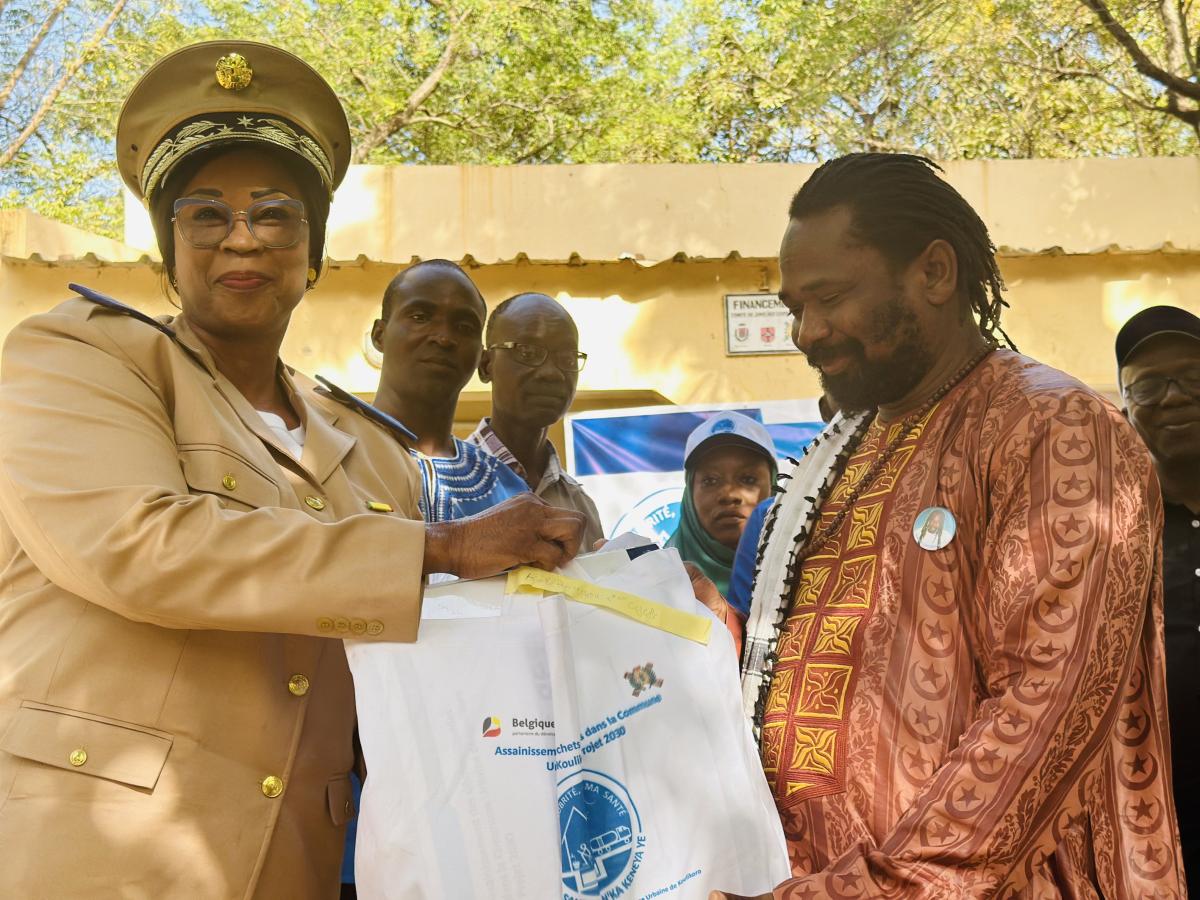
Éducation à l'Assainissement : distribution de kits scolaires à Koulikoro au Mali
Nènè TRAORE | 20/02/2024
Les écoles de la commune de Koulikoro au Mali mieux informées sur la chaine de l’assainissementDans le cadre de son engagement continu envers la commune urbaine de Koulikoro, le projet PEPAK (projet d'amélioration de l'accès à l'eau potable et à l'assainissement dans la région de Koulikoro) à travers la campagne de communication « Ma salubrité, c’est ma santé » a organisé une distribution de kits scolaires dans des établissements scolaires. L'activité s'est déroulée le jeudi 08 février 2024. Cette initiative vise à informer le milieu scolaire sur l’assainissement afin que les jeunes adhèrent aux activités mises en place au sein de la commune. Les jeunes gens, censés prendre la relève dans le futur, connaitront dès maintenant l’importance de l’assainissement. La remise des kits scolaires aux élèves a eu lieu en présence des autorités communales, des directeurs des écoles concernées et des membres du comité de gestion des écoles. Que comprenaient les kits scolaires ? Des cahiers personnalisés (24.000) avec explications de la chaine de l’assainissement et des bons gestes et pratiques à avoir, des boites à images et des jeux de cartes sur la chaine d’assainissement. Cette distribution de kits scolaires revêt une importance toute particulière dans la commune de Koulikoro où le problème d’assainissement constitue un réel défi, plus précisément la gestion des déchets liquides. En matière d’assainissement des déchets liquides, la situation avant 2023 à Koulikoro tout comme dans la plupart des villes du Mali, était très complexe. Outre la législation claire qui a été publiée à ce sujet, bon nombre d’acteurs savent et sont convaincus de l’importance du rôle de l’assainissement pour le développement du pays. Cependant, l’application de la loi reste timide. Face à ce constat, la Mairie de Koulikoro a sollicité le soutien du projet PEPAK mené par Enabel au Mali. Ensemble, avec les parties prenantes concernées, chacun·e a pris le temps de réfléchir à une organisation réaliste, conforme à la règlementation en vigueur. Que fait le projet PEPAK concrètement?Le projet PEPAK met à disposition l’équipement et le soutien nécessaire au lancement du projet d’assainissement des déchets liquides porté par la Mairie de Koulikoro, avec une vision à 2030. En plus de soutenir la commune de façon générale, et les élèves individuellement, cette initiative renforce également le sens de la communauté au sein de l'école. Les retombées de cette distribution vont bien au-delà des kits eux-mêmes. En offrant aux élèves ces kits pour les informer des bons gestes à avoir, la commune prépare ses habitant·es à maintenir un cadre de vie sain.
